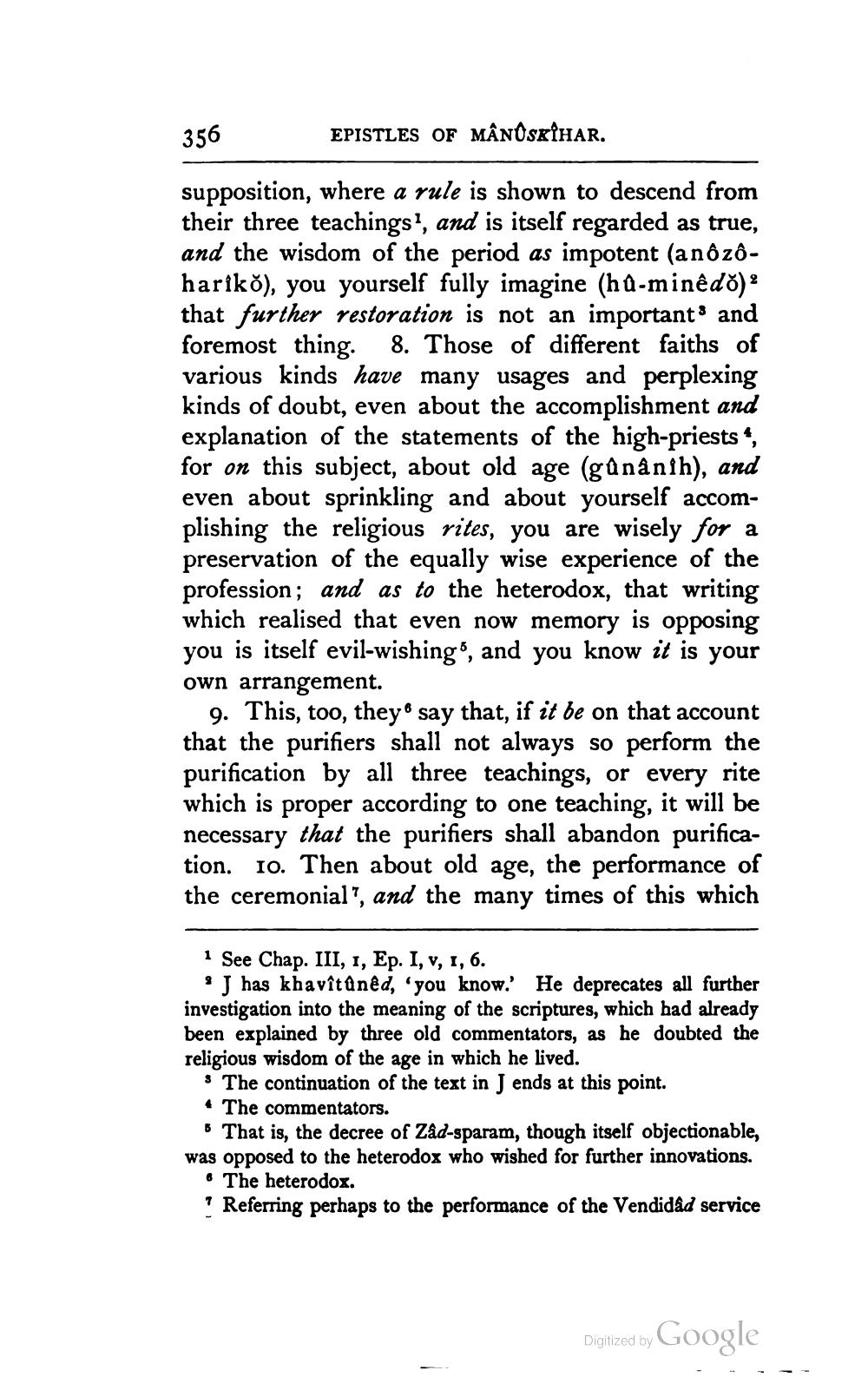________________
356 EPISTLES OF MÂNOSKİHAR. supposition, where a rule is shown to descend from their three teachings', and is itself regarded as true, and the wisdom of the period as impotent (a nôzôhariko), you yourself fully imagine (h -minêdó) that further restoration is not an importants and foremost thing. 8. Those of different faiths of various kinds have many usages and perplexing kinds of doubt, even about the accomplishment and explanation of the statements of the high-priests“, for on this subject, about old age (günânih), and even about sprinkling and about yourself accomplishing the religious rites, you are wisely for a preservation of the equally wise experience of the profession; and as to the heterodox, that writing which realised that even now memory is opposing you is itself evil-wishings, and you know it is your own arrangement.
9. This, too, they say that, if it be on that account that the purifiers shall not always so perform the purification by all three teachings, or every rite which is proper according to one teaching, it will be necessary that the purifiers shall abandon purification. 10. Then about old age, the performance of the ceremonial', and the many times of this which
1 See Chap. III, 1, Ep. I, v, 1, 6.
J has khavîtûnêd, you know. He deprecates all further investigation into the meaning of the scriptures, which had already been explained by three old commentators, as he doubted the religious wisdom of the age in which he lived.
3 The continuation of the text in J ends at this point. • The commentators.
• That is, the decree of Zad-sparam, though itself objectionable, was opposed to the heterodox who wished for further innovations.
. The heterodox. ? Referring perhaps to the performance of the Vendidad service
Digitized by Google




